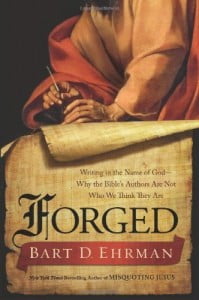 Last week I had the interesting experience of preaching on Mark 14–15.15, which covers the anointing at Bethany, Judas agreeing to betray Jesus, the last supper, Gethsemane, Peter’s denial, Jesus’ trial before the Sanhedrin, and Jesus before Pilate. Whew! But I learnt a lot from the experience.
Last week I had the interesting experience of preaching on Mark 14–15.15, which covers the anointing at Bethany, Judas agreeing to betray Jesus, the last supper, Gethsemane, Peter’s denial, Jesus’ trial before the Sanhedrin, and Jesus before Pilate. Whew! But I learnt a lot from the experience.
1. This is not the usual way we treat these passages—most of the time I would imagine we aim to preach on each episode in detail. That is one way to read them, but another (and probably more common) way of reading in the early centuries would have been to have heard larger pieces of narrative, and so have a better feel for the whole ‘shape.’ At St Nic’s we have been working through Mark, and





























